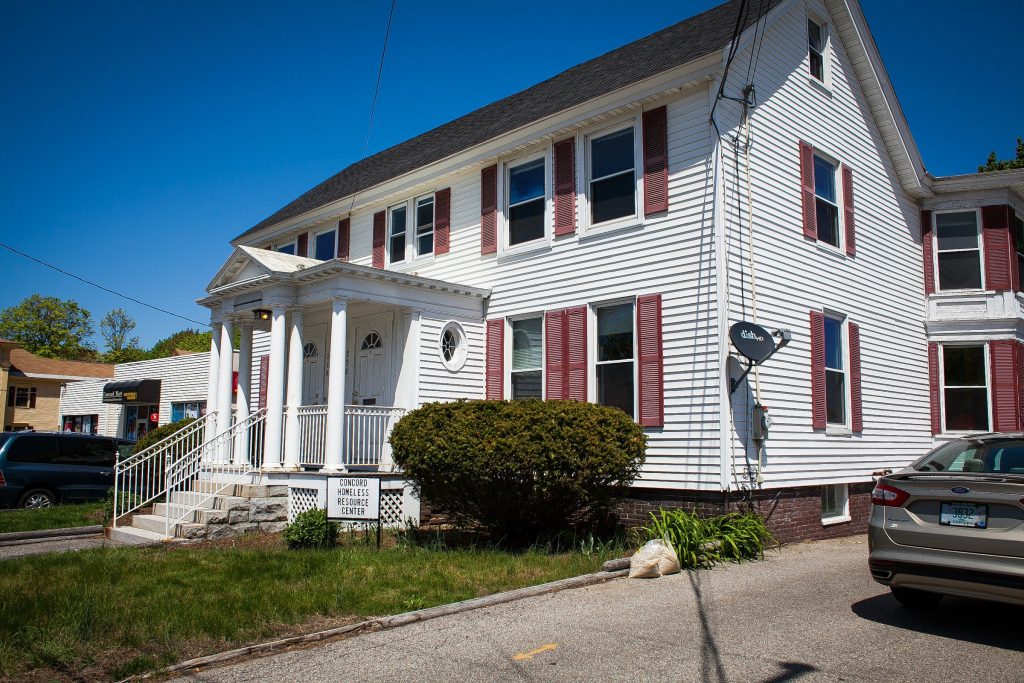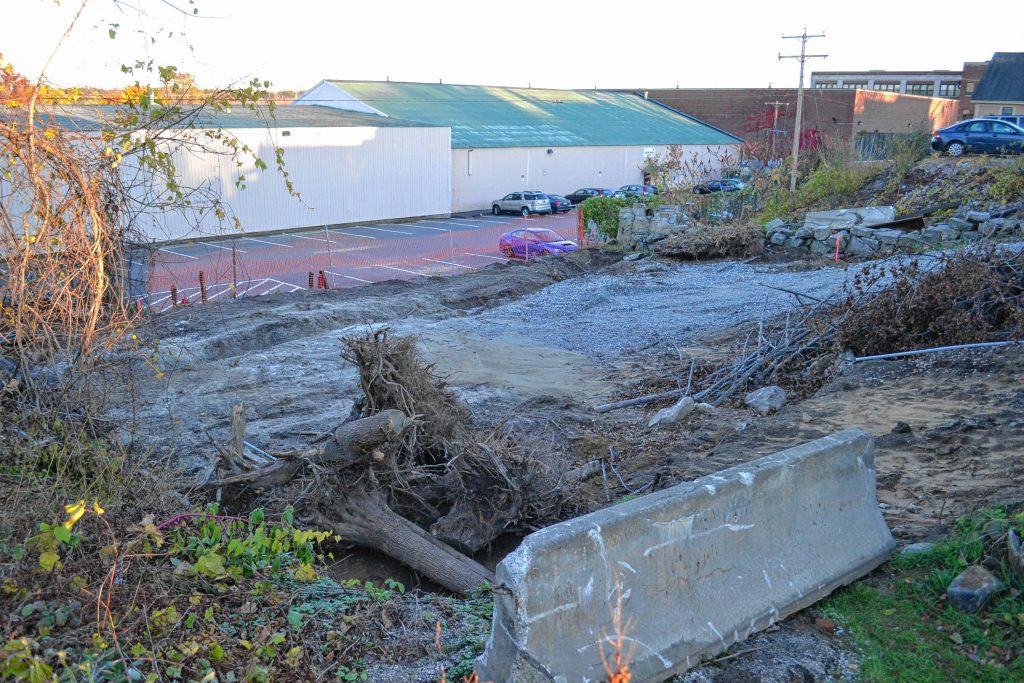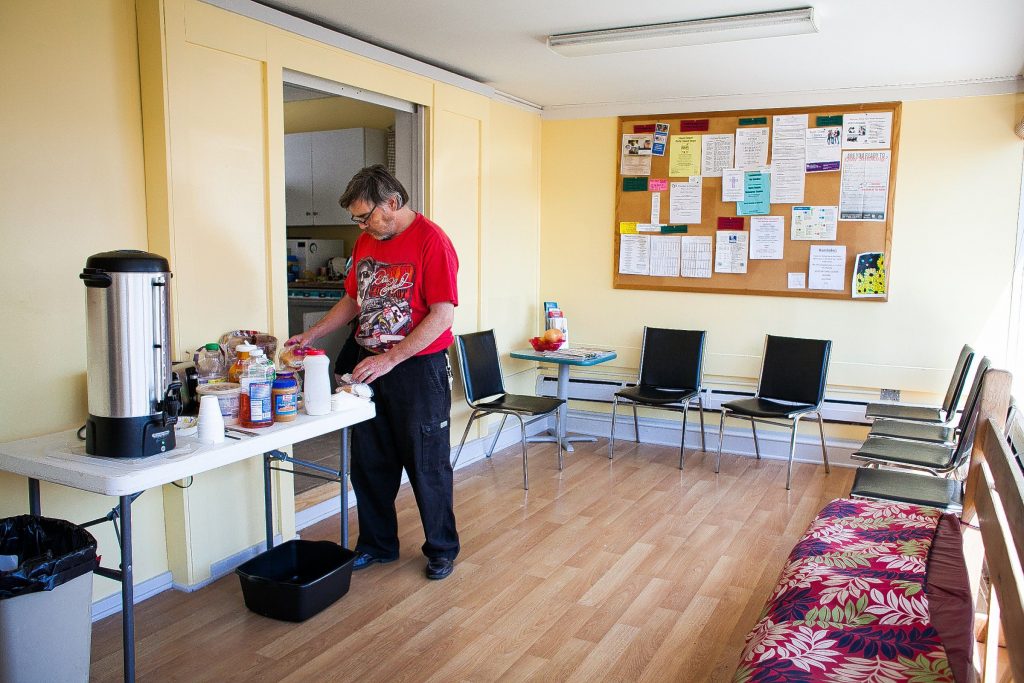For a few years, right about this time of year, there has been a collective scramble to figure out where the emergency winter shelter in Concord was going to be.
After First Congregational Church and South Congregational Church made the decision to end their shelter operations in 2015 after many years of providing a warm place to stay for the city’s homeless, many wondered what would happen the following winter.
It took well into December of that year before St. Peter’s Church, which was for sale, was established as a landing spot for the shelter thanks to Mayor Jim Bouley’s efforts. The Friends Program ran the shelter for the last two winters, but it was never meant to be a permanent solution.
“It was taking so much energy trying to come up with a solution,” said Ellen Groh, executive director of the Concord Coalition to End Homelessness.
And after years of uncertainty that will all be put to rest this winter.
“We came to the realization that no one really wanted to own this,” Groh said.
If you didn’t know, the Concord Coalition to End Homelessness is building a 40-bed shelter right behind the Concord Homeless Resource Center on North Main Street.
The group, which has been at the forefront of working to, well, end homelessness since being created in 2008, is ready for a time when they don’t need to start panicking when fall rolls around.
The shelter, which because of the space available on the current resource center property will be 20 feet wide and 70 feet long. It will consist of 40 beds, bunk beds no less, with bathrooms, an office and a marginal amount of open space.
“We’re using every inch of space. It will be very utilitarian,” Groh said. “As simple as simple can be.”
They looked at renovating the resource center building, but it would have been too much of an undertaking. At the same time, the location is ideal with a bus stop out front, walking distance to downtown and the Friendly Kitchen.
“It will be crowded and it will be smaller than it has been,” Groh said. “But the goal of the shelter is to keep people safe who don’t have any other option. A safety net of last resort.”
Luckily, countless people have come forward to pledge money toward the three-year Safe Spaces campaign.
Local contractors and businesses have donated time, labor and materials to the project, but even then there’s still an associated one-time cost of $738,000 to purchase the property, the site work and construction and reserves. Plus another $892,000 to fund the resource center, Housing First (which we’ll get into soon), shelter operations and coalition work over a three-year period.
“In the end, we’ll own the whole property,” said Ellen Fries, chair of the coalition’s board of directors.
So even with an outpouring of support thus far, they still need your help in whatever way you can – whether it’s $5 or $5,000.
The goal is for the shelter to be open sometime in this winter, although you wouldn’t guess it the way the construction site looks right now. There will be a temporary shelter in place hopefully by mid-December to bridge the gap.
One way you can help is by taking part in Hunger and Homelessness Awareness Week.
Every day this week (actually beginning Monday with the Clean Take) a different Concord restaurant is donating a percentage of sales to the Safe Spaces campaign.
Hermanos is the spot on Tuesday, followed by Dos Amigos on Wednesday. The Works Bakery and Café is your destination for a bite on Thursday, with both Live Juice and Revival Kitchen and Bar is the place to be on Friday. The Concord Food Co-op rounds out the week on Saturday.
So it’s as simple as using your one day out to eat at these specific restaurants on their date to help the coalition.
“You’ve got to eat lunch anyway,” Fries said.
You can also send them a check if you’d like.
“We’ll take whatever,” Fries said.
If you remember, we mentioned a program called Housing First. It’s been implemented all over the country and the goal is to take someone who is defined as chronically homeless, as they are, off the streets and put them into permanent housing by helping pay their rent.
Concord has been taking part in the program for two years and is currently full, housing 15 people who have a combined 98 years of homelessness that totals $96,000 in rent.
“We’re applying to increase our funding,” Groh said.
Chronic homelessness is someone who has been homeless for more than a year and has a documented disability.
So as you can see, the coalition has a lot going on. And they sure could use your help.












